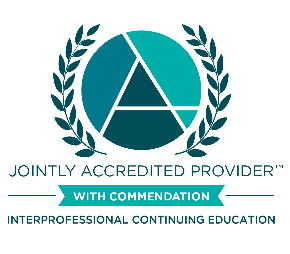A Resource for Healthcare and Social Services Professionals
December 21, 2023
9:00 am–11:00 am ET
This two-hour course will provide prescribers with the skills needed to implement addiction treatment in a practice setting. It is intended to provide prescribers with practical, evidence-based strategies for initiating and maintaining medications for opioid use disorder (MOUD) as well as tools to care for patients with ongoing use and/or polysubstance use.
Via Zoom
This two-hour course is designed to provide prescribers, including pharmacists, with the skills and education necessary to prescribe MOUD in the outpatient setting as well as in the emergency department. Topics include initial assessment, initiation of buprenorphine, injectable medications, visit management, monitoring, and strategies to reduce harm associated with continued use.
Medical professionals with prescriptive authority looking to increase provision of care for patients with opioid use disorder in an outpatient treatment setting or emergency department.
Andrea is a clinical nurse educator for Boston Medical Center's Grayken Center for Addiction Training and Technical Assistance, where she contributes to the development and delivery of continuing education programs, peer-reviewed publications, evidence-based clinical guidelines, and other resources for providers supporting patients with substance use disorders. She is also a family nurse practitioner at Boston Medical Center, an assistant professor of medicine at the Boston University Chobanian & Avedisian School of Medicine, and conducts research in the use of telehealth and coordinated care for persons with opioid use disorder and depression. Andrea is an active member of the Boston University Medical Group Advanced Practice Provider Council and the Massachusetts Coalition of Nurse Practitioners. Andrea has worked with vulnerable populations for over 10 years including managing substance use disorders and overall healthcare for persons experiencing homelessness with the Boston Health Care for the Homeless Program. She is a term lecturer and preceptor for nurse practitioner students at the Massachusetts General Hospital Institute of Health Professions (IHP) and received her Doctor in Nursing Practice (DNP) degree from the IHP in 2018. She also holds certification as a Certified Addiction Registered Nurse - Advanced Practice (CARN-AP) through the Addictions Nursing Certification Board (ANCB).
Annie Potter, MSN, MPH, NP (she/her)Annie is a clinical nurse educator for Boston Medical Center's Grayken Center for Addiction Training and Technical Assistance, an assistant professor of medicine at Boston University Chobanian & Avedisian School of Medicine, and a nurse practitioner at Boston Medical Center. Annie contributes to peer-reviewed publications, evidence-based clinical guidelines, development and delivery of continuing education programs, and other resources for clinicians supporting patients with substance use disorders. Annie is also consultant and educator for the Massachusetts HEALing Communities Study, a multi-state study funded by the National Institute on Drug Abuse. She is also the Medical Director for the Massachusetts Community Health Center ECHO and an expert faculty member of the Provider Clinical Support System Exchange (PCSS-X). Annie's other clinical interests include treatment and prevention of HIV and Hepatitis C, family planning, and care for gender-diverse individuals. Before joining Boston Medical Center, Annie practiced at a community health center in Baltimore, MD, where she established and directed the city's first walk-in HIV treatment and prevention program. She is board-certified in addictions and holds specialty certifications for the treatment of HIV and Hepatitis C. Annie earned both her Master of Nursing and Master of Public Health from Johns Hopkins University.
Following this training, participants will have the knowledge necessary to:
Boston Medical Center Grayken Center for Addiction TTA, Massachusetts Department of Public Health, Bureau of Substance Addiction Services (DPH/BSAS)
Funding for out of state attendees is provided by the Opioid Response Network (ORN).
Funding for this initiative was made possible (in part) by grant no. 1H79TI083343 from SAMHSA. The views expressed in written conference materials or publications and by speakers and moderators do not necessarily reflect the official policies of the Department of Health and Human Services; nor does mention of trade names, commercial practices, or organizations imply endorsement by the U.S. Government.
REQUIREMENTS for credit
Please note this policy is strictly enforced for accreditation purposes. Participants will forfeit collection of credit and certificates of completion if more than 10 minutes of the training is missed.
CME
 In support of improving patient care, Boston University Chobanian & Avedisian School of Medicine is jointly accredited by the Accreditation Council for Continuing Medical Education (ACCME), the Accreditation Council for Pharmacy Education (ACPE), and the American Nurses Credentialing Center (ANCC), to provide continuing education for the healthcare team.
In support of improving patient care, Boston University Chobanian & Avedisian School of Medicine is jointly accredited by the Accreditation Council for Continuing Medical Education (ACCME), the Accreditation Council for Pharmacy Education (ACPE), and the American Nurses Credentialing Center (ANCC), to provide continuing education for the healthcare team.
Boston University Chobanian & Avedisian School of Medicine designates this live activity for a maximum of 2.00 AMA PRA Category 1 Credit(s)™. Physicians should claim only the credit commensurate with the extent of their participation in the activity.
Nursing
Boston Medical Center is approved as a provider of nursing continuing professional development by the American Nurses Association Massachusetts, an accredited approver by the American Nurses Credentialing Center’s Commission on Accreditation. Participants who complete and return the evaluation and stay for the entire session will be awarded a total of 2.00 contact hours, with 2.00 contact hours classified as pharmacology.
Disclaimer
Continuing education (CE) requirements vary by license and jurisdiction. When requesting continuing education credits, please ensure you are following the rules and regulations determined by the board regulating your license. Boston Medical Center Grayken Center for Addiction TTA does not oversee adherence to licensing requirements and regulations.